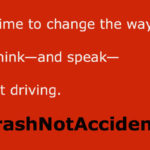The number of road incidents involving driver drowsiness is close to eight times higher than the federal estimate, based on a recent study by AAA.
Analyzing data from more than 700 dashcams and 3593 drivers, researchers looked at the 3 minutes prior to a crash. By tracking eyelid closures, they found that 9.5% of all crashes involved drowsiness.
That is a sharp contrast to National Highway Traffic Safety Administration (NHTSA) statistics, which estimate driver drowsiness as a factor in only 1.4% of all police-reported crashes.
Truck driver fatigue and crash risk
There are more semi-trucks on the roads than ever before, and crashes have increased about 20% over the past decade. Many truck crashes have resulted in the loss of life or serious and life-altering injuries.
One of the most common factors in commercial motor vehicle crashes is truck driver fatigue.
This makes sense. We know that our attention and reaction times are greatly affected by drowsiness or fatigue.
But when your job is driving—especially if you’re driving an 80,000 lb. truck— lack of sleep can be truly dangerous.

Sleep deprivation is a massively underreported cause of truck crashes.
Here’s how motor carriers pressure, bad planning, lack of parking, make truck driver fatigue dangerous:
What happens when sleep is a safety issue?
Falling asleep or experiencing driver fatigue can lead to unnecessary risks. Theoretically, a truck driver should never operate his big rig on our public highways unless they are fully alert and attentive.
The question is, how do we make that theory a reality?
The unrealistic schedules and expectations of trucking companies push commercial truck drivers to hurry—despite safety risks.
The pay-per-mile system means that truckers only get paid for time on the road. Time loading, unloading, or logging doesn’t count.
And the best way to prevent fatigue it is for truckers to get a good night’s sleep. Energy drinks and coffee are not a substitute. That can be very difficult on the road. In an FHA survey, 75% of truckers reported “problems with finding safe parking locations” when they need to rest.
The AAA survey only looked at non-commercial drivers. Combined with what we know about sleep deprivation in overworked truckers, and the increase in the truck crash rate, I would guess that we will see evidence of the same correlation between fatigue and collisions with truck drivers.
 Coluccio Law does not refer to preventable truck crashes as accidents – and here’s why…
Coluccio Law does not refer to preventable truck crashes as accidents – and here’s why…

Leave A Comment